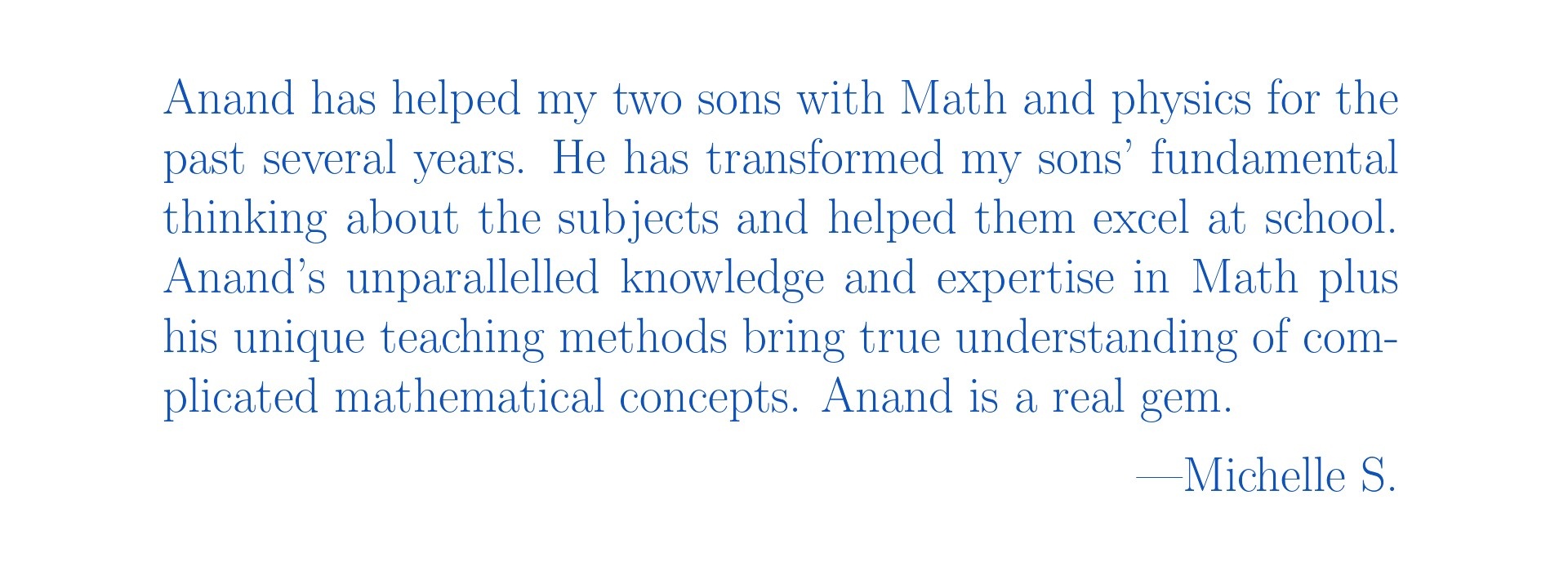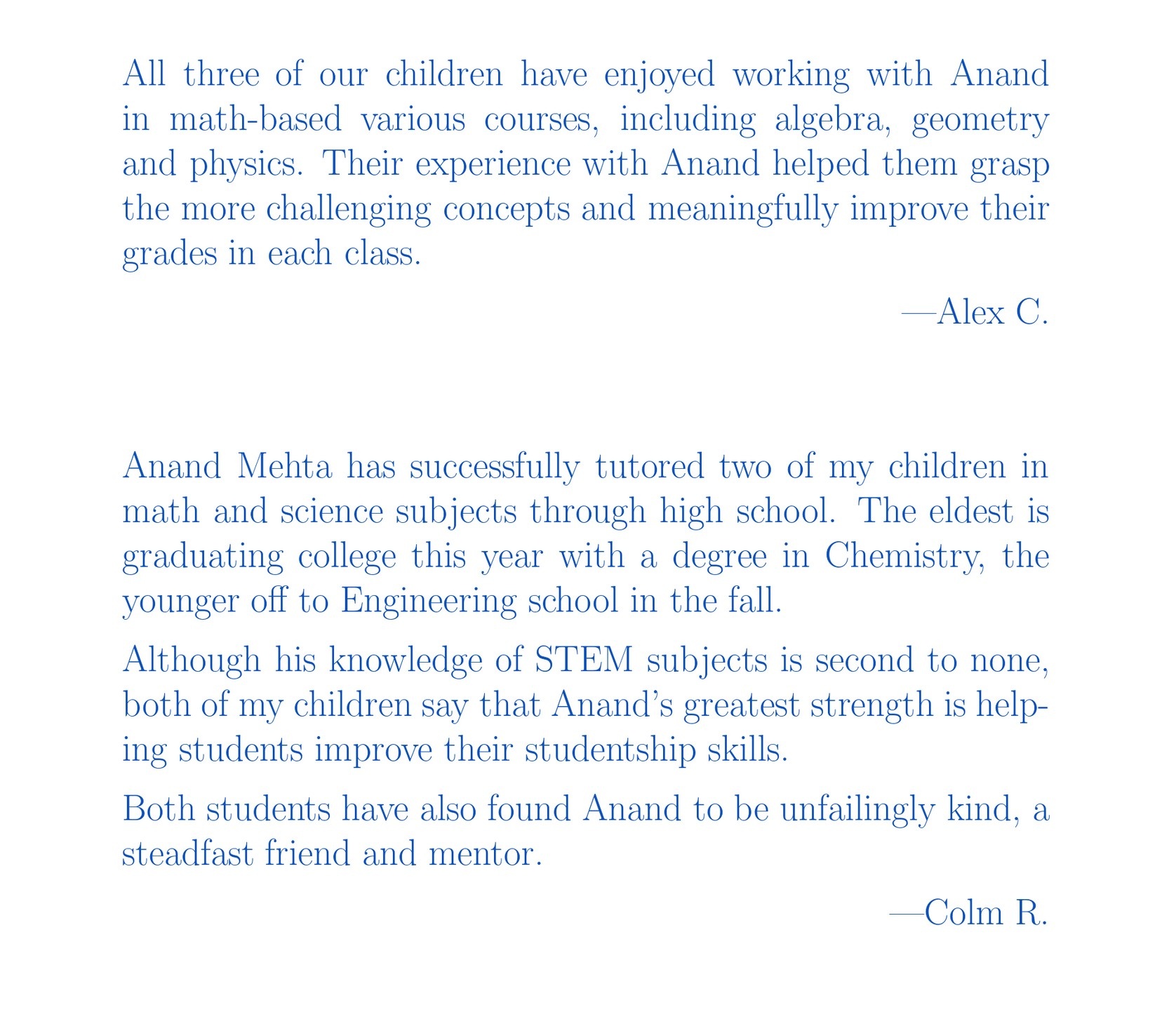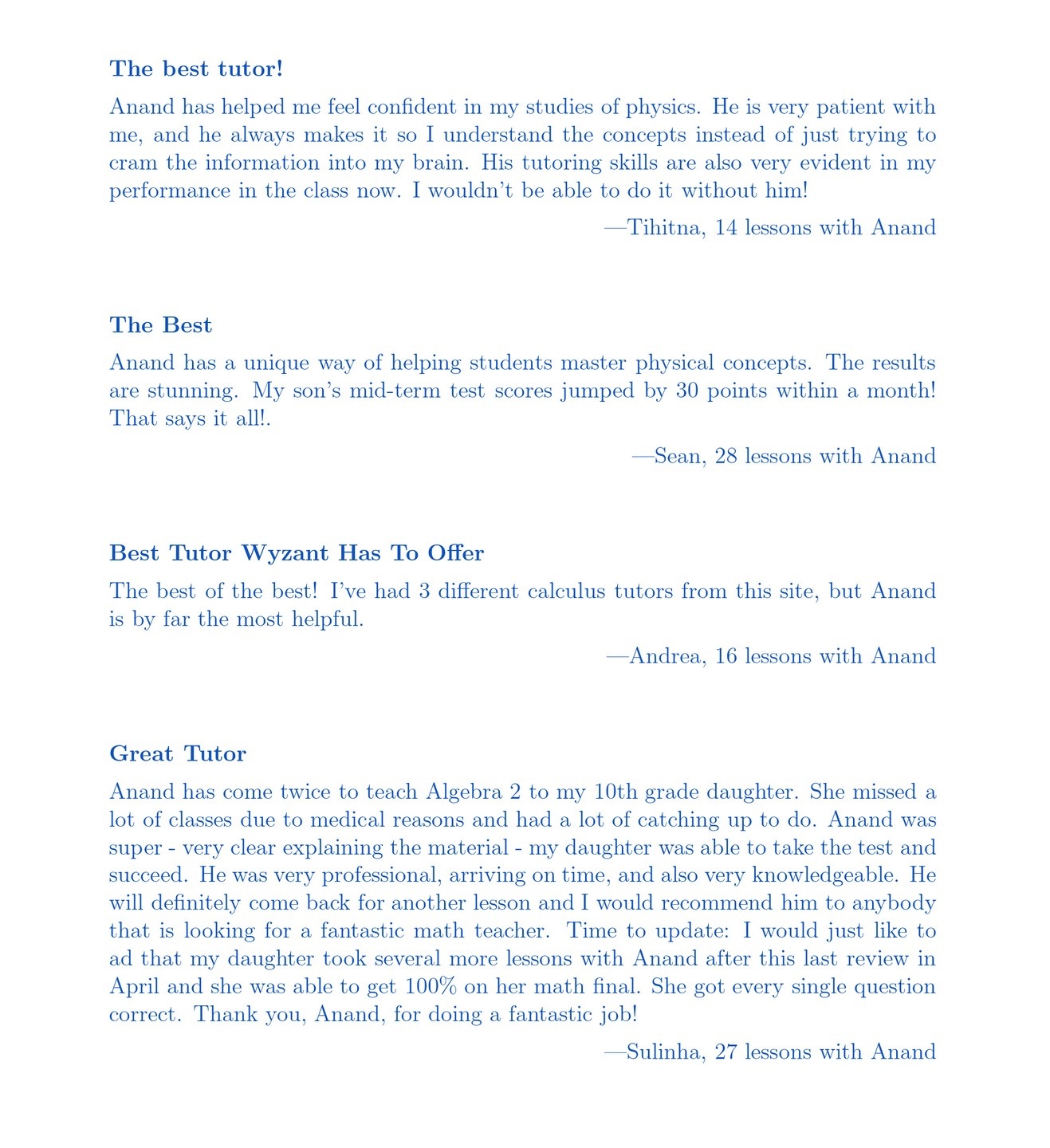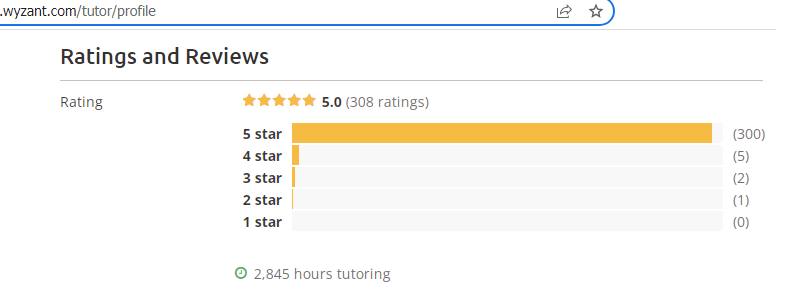the Understanding Pursuit
Helping Students Learn to Learn Better
For the strong, motivated student and the supportive parent or guardian frustrated with the results in math and science class...
the Understanding Pursuit presents a different approach to the class material for more effective and efficient learning.
There is no magic wand; time, effort, and persistence is always required. The approach reduces the struggle by helping students learn to learn better.
If this is for you, you're in the right place.
These methods include
- Finding connections, patterns, and structure to replace the endless
memorization of disconnected "nuggets of information". - Understanding the derivation of key formulas and equations, allowing them to be used more easily where appropriate.
- A consistent problem solving approach: Deconstructing the problem into sub-components, solving the familiar parts, and Synthesizing a complete answer.
- A process for note-taking to reduce the sense of "I don't know what I
do know."
With this students gain confidence and achieve success in their quantitative subjects in high school, college, and professional careers.
Who is tUP?
I'm Anand, and I have a B.S. and Ph.D., both in Physics from MIT, with work in medical physics and computational astrophysics. (Yes, I'm technically a rocket scientist.) As an undergraduate and graduate student, I understood the way my friends and I needed to approach quantitative subjects.
Since 2014 I have had a six-figure freelance tutoring business, working with high school and college students to improve their performance in math, physics, computer science, and chemistry classes. These are very capable students, yet they struggled in their math and / or science courses. They had been succeeding on their general intelligence, and then found they needed a more intentional way to learn.
While tutoring I see that the current education system inadequately prepares them for the approach required for college success.
Analyzing how I learned physics, math, and computer science to complete my PhD, I developed methods for students to more effectively learn these subjects.
Does it work?




Helping Students Learn to Learn Better.
Okay, but how?
Shift the mindset from numerical calculations to algebraic solutions.
- Allows the result to stay connected to the question.
- Allows processes to be applied more consistently and comfortably.
Shift the work.
- Take more effective notes from the textbook and class.
- Derive key formulas and equations.
- Step away from ``reverse engineering'' problems, or worse, answering a question and then moving on without analyzing the process to learn from it.
- Gain greater understanding while doing fewer ``practice problems'' and less monotonous grinding.
Key ideas are explained and derived.
- Students work through derivations to familiarize instead of memorize.
- Students see where formulas come from, including the conditions when it applies.
- Students better understand how the formula can be used.
- Students are no longer using ``plug and chug'', which is important for algebraic problem solving.
Build the knowledge base.
- Simplify ideas.
- Understand the real complexity is the connections between ideas.
- See that there are very few distinct problems.
- Develop an efficient approach to identify the steps to solve problems.
Problem solving.
- Familiarize
- Deconstruct
- Solve sub-components
- Synthesize

